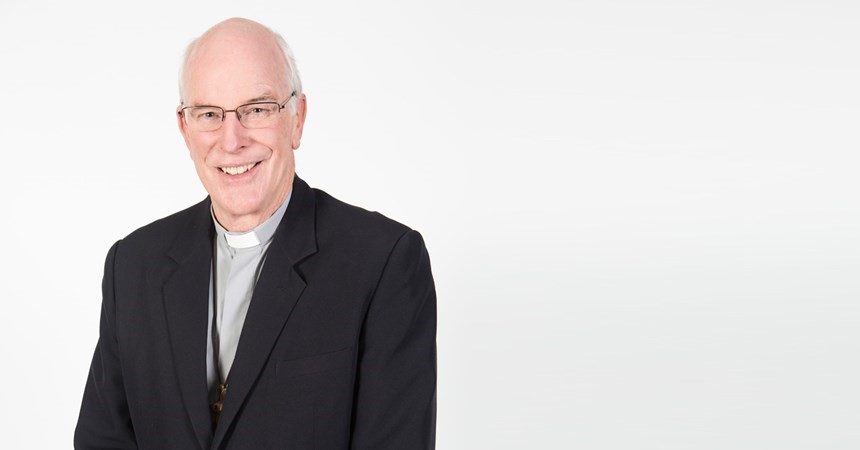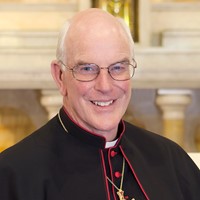Still, the anniversary set me thinking, not so much about the bishop-years as about where it all began. When I visit school classrooms, the kids ask, ‘Why did you want to become a bishop?’ and I try to explain that it doesn’t work that way but, ‘This is why I chose to study for the priesthood.’ I tell them that, as a teenager, I was up to my neck in church youth groups and camps, and that I knew many of the young priests at that time in Sydney, that I admired them and what they did for us, and that, basically, I wanted to do things like that with my life.
Anyway, this anniversary has me thinking back beyond bishop-ing to the men who inspired me. It’s a bit difficult these days to speak well of priests – in some circles just being a priest brings you under suspicion – but I feel the need to say, ‘These were the men I knew who did great things for me and for many like me.’ Of course the first thing was that they were good men, good human beings. When I was on a seminary staff, and we would be assessing students, I would sometimes invoke my own somewhat instinctive criterion, ‘A decent human being who believes in God’. Talent is nice, humanity is essential. But to get to some of these men…
The late Jim Granger was the curate of my later teenage years. He had been, and looked like, a Rugby League prop forward, a bit battered if the truth be told. By following through on a rather simple idea that the youth of the parish really needed to be brought together, he fell into running the biggest parish youth group in Sydney. Not that he was particularly ‘charismatic’. He wasn’t a stirring speaker, publicly or otherwise, but you listened because what he stumbled to express was thoughtful and ‘real’. And he was good at bringing in the charismatic people when needed. But he held things together. He liked the possibilities in young people, liked to see them develop, and he worked hard to create the opportunities. Like many of those ‘60s priests, he worked hard in general. After about fifteen years of strenuous ministry, he had a serious breakdown and he and the Pope agreed that enough was enough. He continued to serve the church in its welfare services, but no longer in the front line. At his funeral I met people I hadn’t seen in forty years, since we were kids. That’s lasting impact.
Meanwhile, at school, I’d come under the influence of the late Fr Tom O’Donovan sj. It’s hard to sum Tom up, as it is with all of these men. ‘He was full of enthusiasm’, perhaps? He was Rector of the College, but no menial task was alien to him, like coaching Rugby Union which, as a good Victorian, he knew nothing about. Fortunately, the 14Bs didn’t know any better, and he at least made them keen. He stood by the pedestrian crossing each afternoon after school, telling boys to straighten their ties or pull their socks up, but somehow without being the least bit head-masterly about it, as if he knew they meant to do the right thing but had forgotten it for a time. In fact, there was always that sense conveyed that he thought well of you, even if boys will sometimes be boys. Before he died in 2013 he suffered a degree of dementia. I was at a dinner in a Jesuit house when I saw him last and it is a thankful memory that he was so pleased to see me, and proud that I was a bishop, on at least three separate occasions that evening. Short term memory, shot. Long term enthusiasm and interest in his students, undiminished.
Finally, because of the constraints of space, my first parish priest, Monsignor Ian Burns. Unlike many parish priests of the time, Ian believed that a curate should be a colleague and, if possible, a friend. In parochial matters, he shared all his experience with me and let me make my contributions too. The popular clerical view was that he should have been a bishop, but he probably didn’t have the style or bearing then required, and he wasn’t going to act the part for anybody. What he did have was a tremendous sense of duty in ministry and a genuine compassion, sort of a ‘preferential option’, for the poor of his inner suburban parish. I think of him ushering engaged couples quietly out of the presbytery at night, to avoid disturbing ‘Mick’, the town drunk asleep on the porch. Too many memories, not enough words. But thank you to these and other men, talented but also ordinary in so many ways, who showed me priesthood off the altar as well as priestly sincerity on it. I can’t imagine who I’d be if I’d not known them.























































































